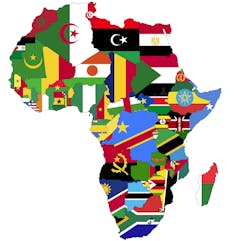CC™ Nigeria NewsBy Chukwuani Victoria
Billionaire businessman, Femi Otedola has said that he offered to acquire Transcorp Plc for N250 billion and take the company’s market capitalization to N2 trillion but his bid was rejected.
Recently, Otedola acquired a 5.52 percent stake in Transcorp Plc to become the second largest shareholder of the company, but then sold out his entire holding to Tony Elumelu, the chairman of the group.
In a press statement he shared with The Cable on Tuesday morning, Otedola spoke for the first time on the events surrounding his bid to take over the company.
The statement read, “In 2005, while Tony was the Managing Director of Standard Trust Bank he approached me to get funds to acquire UBA. I enthusiastically gave him $20million, which was N2billion at that time to buy the necessary shares in UBA for the acquisition. After a short period of time, the share price moved up and I decided it is was a good moment to sell and get out of the bank. However, Tony appealed to me to hold on to the shares as he was convinced that there were future prospects – so I kept the shares.
“I became Chairman of Transcorp Hotel in 2007 with a shareholding of 5% and unknowingly Tony gradually started buying shares quietly.
“By the following year in 2008 I went bankrupt in Nigeria. Tony proceeded to take my shares in UBA to service the interest on my loans and he also took over my shares in Africa Finance Corporation, where I was the largest shareholder.
“Shortly after, Albert Okumagba informed me that an American firm wanted to acquire my shares in Transcorp, which I then agreed to sell. However, this supposed American firm turned out to be Tony Elumelu. The revelation of this prompted me to resign as Chairman of the hotel.
“Years later in 2012 Tony said he wanted to see me so we met in my office where I had previously had a meeting with foreign investors who had not yet departed the premises.
Curious to know, he asked what sort of meeting I had had and I disclosed that I wanted to go into the power business, specifically Ughelli Power Plant. Tony quietly went ahead to bid for Ughelli and he outbid me by offering to buy the plant for $300 million.
“And as a some would say: the rest is history.
“Fast forward to the present…
“I offered to buy Transcorp Plc for N250 billion, but unfortunately, my offer was rejected. My goal was to maximize the company’s potential as a Nigerian conglomerate with a market cap of at least N2 trillion instead of the current N40 billion, but it seems some shareholders have a different vision.
“As a businessman, I believe in healthy competition and market dynamics. Two captains cannot man a ship, and I respect the majority shareholder’s decision to buy me out. This is the nature of the game.
“But let me be clear: my offer was made with the best intentions for Transcorp Plc and its shareholders. I saw an opportunity to unlock the company’s full potential and create value for everyone involved.
“It’s important for investors to understand that free entry and free exit are crucial to healthy markets. The scramble for shares after my acquisition is a testament to the value that Transcorp Plc can offer, and I hope the company continues to thrive under new leadership.
“My message to Transcorp Plc and its shareholders is this: I remain committed to the growth and success of Nigerian businesses, and I will always be looking for ways to create value for all stakeholders.
Stakeholders are unfortunately always shortchanged by getting stipends while the owners and managers of the business live a jet set lifestyle, which is detrimental to the stakeholders. Thank you for the opportunity to engage in this exciting chapter of Transcorp’s history.”
Elumelu has yet to officially react to the allegations levelled against him.
VANGUARD










